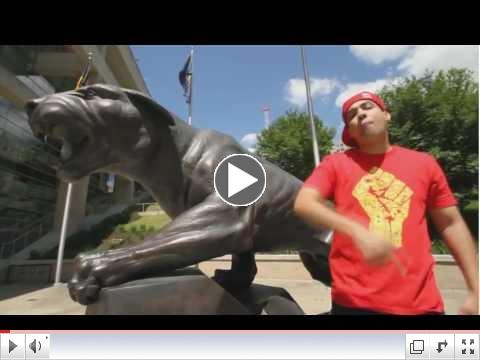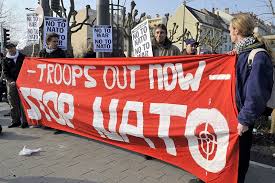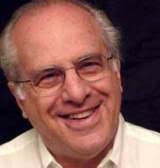Visit Our New 'Online University of the Left' and Be Amazed!

Check out the various departments, study guides and archives
|
Dialogue & Initiative 2012 The new annual edition of our journal of discussion and analysis is now out. More than 130 pages, it includes 13 articles related to the Occupy! movement, as well as seven others vital to study in this election year. Cost is $10 plus shipping. Or get one by becoming a new member or sustainer. Click the title to buy it directly.
|
Lost Writings of SDS..
Revolutionary Youth the the New Working Class: The Praxis Papers, the Port Authority Statement, the RYM Documents and other Lost Writings of SDS
Edited by Carl Davidson 
Changemaker, 273pp, $22.50
For the full contents, click the link and view 'Preview' under the cover graphic.
|
|
By Randy Shannon, CCDS

"Everyone has the right to work, to free of employment, to just and favorable conditions of work and to protection against unemployment."
- United Nations Universal Declaration of Human Rights, December 10, 1948
I. Introduction
The "Great Recession" that began in 2007 has caused the greatest percent of job losses since the Great Depression of 1929. This crisis is the end of an era of unrestrained 'neo-liberal' capitalism that became public policy during the Reagan administration. The crisis marks a new level of instability with the growth of a global financial elite that targeted US workers and our trade unions after World War II.
|
|
Order Our
Full Employment Booklets
 |
...In a new and updated 2nd Edition
Capitalism may well collapse under its own excesses, but what would one propose to replace it? Margaret Thatcher's mantra was TINA...There Is No Alternative. David Schweickart's vision of "Economic Democracy" proposes a serious alternative. Even more fundamentally, it opens the door to thinking about alternatives. His may or may not turn out to be the definitive "successor system," but he is a leader in breaking out of the box. |
|
Quick Links...
CCDS Discussion |
Shades of Justice

An antiwar political history
by Paul KrehbielAutumn Leaf Press
$25.64 |
Carl Davidson's Latest Book:
New Paths to Socialism

Essays on Mondragon, Marx, Gramsci and the Green and Solidarity Economies |
Solidarity Economy:What It's All About

Edited by Jenna Allard, Carl Davidson and Julie Matthaei
Buy it here...
|
|
|
|
An Invitation to CCDSers and Friends...
 Student Debt Time Bomb Is Ticking!
We're the Committees of Correspondence for Democracy and Socialism...Do you have friends who should see this? Pass it on...Do you have a blog of your own? Others you love to read every day? Well, this is a place where you can share access to them with the rest of your comrades. Just pick your greatest hits for the week and send them to us at carld717@gmail.com!
Most of all, it's urgent that you oppose austerity, make solidarity with the Occupy! movement and end the wars! We're doing more than ever, and have big plans. So pay your dues, make a donation and become a sustainer. Do it Now! Check the link at the bottom...
|
The Student Debt Bomb

By Laura Flanders
Common Dreams
May 17, 2012 -President Obama doled out the most shocking stream of commencement cliches to the graduating class of Barnard College Monday. To offer just a taste: "The question is not whether things will get better - they always do... The question is whether together, we can muster the will - in our own lives, in our common institutions, in our politics - to bring about the changes we need. I'm convinced your generation possesses that will."
Whatever else they possess, the class of 2012 possesses an enormous amount of debt. Heavy borrowing's not only for graduate students or drop outs from for-profit colleges any more. It's also for Barnard alums. Forty eight per cent of those graduating this year from Barnard (where the price tag of an education stands at $58,078 ) have taken out loans to pay for their bachelor's degree. As the New York Times recently pointed out, "Nationally, ninety-four percent of students who earn a bachelor's degree borrow to pay for higher education - up from 45 percent in 1993." For these students things aren't getting better, they're getting worse. Their will has nothing to do with it.
Standing at $1 trillion and rising fast, outstanding student debt is a bubble set to burst. The New York Times report compiled shocking numbers: "For all borrowers, the average debt in 2011 was $23,300, with 10 percent owing more than $54,000 and 3 percent more than $100,000." Not just the students but also their parents are borrowing. Loans to parents for the college education of children have jumped 75 percent since the 2005-2006, according to the Times. (Click title for more)
|
|
Student Activism Is Alive and Well in Arizona

By Gabriel Schivone
IPS News
May 17, 2012 - In December 1985, The New York Times reported on what was believed to be the first anti-apartheid conference of U.S. high schools discussing divestment from corporations operating in South Africa.
Sixteen independent schools met at St. James Episcopal Church in Manhattan to discuss the divestment question, which was raging mostly on college campuses throughout the U.S.
In the background, the Times reported, was a mailing by the National Association of Independent Schools "urging the organization's 1,000 members to 'declare their opposition to apartheid as part of their educational responsibility' and to 'seek out ways to give substance to their declaration.'"
It was no secret that youth 27 years ago were leading the way and school officials themselves were forced to react. The chair of the conference admitted that he and his constituents didn't want to "preach to anyone" but rather "facilitate a movement that's going on all across the country".
Others elaborated on their desire to aid future youth in similar situations. "We're training future leaders," Sister Virginia Mary of St. Hilda's and St. Hugh's School told the Times, "who will have to know what responses to make to these issues."
Today, these "future leaders" can be found in a community-based movement led by youngsters shaking Arizona.
The young students are also shaking the country to its bones with their struggle that is intimately local - while also one that reverberates across an entire nation where anti-immigrant sentiment abounds - to preserve and defend what has long been the sole K-12 Mexican-American Studies (MAS) program (a.k.a. "Ethnic Studies") in the U.S., outlawed by Arizona on May 10, 2010.
Asiya Mir, currently a senior at Tucson High Magnet School, is one of the teenagers in the youth activist coalition UNIDOS who made national headlines last April when she and fellow youth chained themselves to Tucson Unified School District (TUSD) board members' chairs and dais to prevent the board from voting to dismantle MAS. (Click title for more)
|
Toward a More Perfect Student Unionism:
Lessons From Quebec's 'Maple Spring'

By Biola Jeje and Isabelle Nastasia
AlterNet.org
May 17, 2012 - We students have become morbid about our future. On campuses nationwide, it has become commonplace to see activists holding mock funerals for public higher education.
At Brooklyn College at the City University of New York, we too held a funeral procession: out on the quad, in front of a coffin filled to the brim with diplomas, students were able to stand up in front of their peers and share what the death of higher education meant to them.
One student, bravely holding back tears, shared how her troubles with financial aid, in addition to the death of her father, had made it impossible for her to continue her degree this semester.
For the majority of us seeking degrees, higher education is indeed dying a slow and painful death. Too little considered, however, is the role we as students are playing in its demise. The combination of tuition hikes, a lack of democratic governance in our schools, ballooning student debt, and the intimate relationship between our financial institutions and our academic ones are certainly killing higher education - but what is killing the student movement is our own complacency with these policies. While here in America, students on many campuses have limited themselves to mourning, elsewhere in the world they have taken to the streets - and there is much we can learn from their activism, in order to better our own.
What We Learned from the Maple Spring
Over spring break this year, we were privileged to travel to Montreal, Quebec, where we witnessed their 200,000-person-strong student strike. In the city of Montreal, francophone students have effectively shut down universities in response to a $1,625 tuition hike, proposed to be implemented incrementally over a five-year period. Since February, they have filled the streets en masse in protest, and as of this writing, they remain on strike (despite some injunctions by fellow students), having refused a set of "concessions" recently proffered by the Quebec government. (The government's new proposal actually amounted to an increase of the previously proposed tuition hike, though it would have spread the increase out over an extended period of time - seven years, rather than the originally proposed five.)
The position Quebec's students find themselves in is not unique: at CUNY, we too are facing a tuition hike of $1,500 over the next five years. What has been unique is their ability to build a powerful movement in response to these increases. Here at home, our response has come nowhere close to matching what we saw in Montreal.
When tuition has gone up at CUNY over the past few years we have responded with a rally here and there; it has been decades since students have been able to effectively shut down the university. The 1960s was the last time we saw mass student protests and building occupations at CUNY; the result was the opening of the university's doors to students of color - and unfortunately, the transformation of what had once been called the "free academy" (where state funding once fully covered the cost of education) into an institution where tuition became a mandatory part of enrollment.
What allowed our counterparts in Quebec to mobilize so quickly and with such numbers, when our own student response to similar increases has been so subdued? We realized that the main difference lies in their movement's ability to obtain real, institutionalized student power - something we do not yet have in the United States. (Click title for more)
|
Jasiri X to Scott Walker: 'You're Fired!'
 | | Pittsburgh's Jasiri X on Wisconsin Recall |
|
Ecology and 21st Century Socialism
 By Michelle Foy and Fernando Marti By Michelle Foy and Fernando Marti
FRSO's 'Ask a Socialist'
May 14, 2012 - All life on this planet is at a crossroads. Science, as well as our everyday experience, tells us so.
The mass disappearance of bees, rising food prices, a lack of healthy jobs, and the privatization and decreasing access to clean, drinkable water are just a few examples of the related and deep crises we're facing. If many things don't fundamentally shift in the next 50 years, then we'll be facing some of the biggest challenges we've seen in our history as a human species.
What needs to shift and what might things look like for life on this planet under a different economic, political and social system, under 21st century socialism? We humbly offer some thoughts, after the fortune of engaging with a range of visionaries and revolutionaries around humanity's potential and necessityto live in a fully re-imagined way in our relationships to each other and to all life on earth.
Under 21st century socialism, our structures, our institutions, our economies, our communities, and our families will develop out of a fundamental understanding of interdependence and relationship. Why? Because in this new system, where the "bottom line" does not reign supreme, where people and all life on the planet come before profits, we will understand that in order to survive and thrive we have to live within our limits as a species and understand the consequence of living as a part of a whole.
The Commons and Reparations
A first step in the development of capitalism involved destroying our connections to the land, first in Europe with the enclosure of common lands, then globally through the destruction of indigenous peoples' cultures and colonial exploitation. This resulted in the subdivision of almost the entire earth into plots of "private property," and the privileging of "private property rights" over personal property within the commons, with the central component being private property, which can be exploited, speculated on, and sold off with little or no regulation by society. (Click title for more)
|
NATO: From Fighting Socialism to Global Empire
 By Harry Targ By Harry Targ
Diary of a Heartland Radical
During World War II an "unnatural alliance" was created between the United States, Great Britain, and the former Soviet Union. What brought the three countries together, the emerging imperial giant, the declining capitalist power, and the first socialist state, was the shared need to defeat fascism in Europe.
Rhetorically, the high point of collaboration was reflected in the agreements made at the Yalta Conference, in February, 1945 three months before the German armies were defeated.
At Yalta, the great powers made decisions to facilitate democratization of former Nazi regimes in Eastern Europe, a "temporary" division of Germany for occupation purposes, and a schedule of future Soviet participation in the ongoing war against Japan. Leaders of the three states returned to their respective countries celebrating the "spirit of Yalta," what would be a post-war world order in which they would work through the new United Nations system to modulate conflict in the world.
Within two years, after conflicts over Iran with the Soviet Union, the Greek Civil War, the replacement of wartime President Franklin Roosevelt with Harry Truman, and growing challenges to corporate rule in the United States by militant labor, Truman declared in March, 1947 that the United States and its allies were going to be engaged in a long-term struggle against the forces of "International Communism." The post-war vision of cooperation was reframed as a struggle of the "free world" against "tyranny." (Click title for more)
|
Mercyland: Hymns for the Rest of Us
 | | Mercyland: Give God The Blues - Shawn Mullins |
Music Review
By Holly Gleason
Paste Magazine
When most folks think contemporary Christian music, they run. Whether it's the glossy post-Prozac sheen of Sting at his most vacuous, the dentist's perky AC or the harmony-heavy old-school quartets, it doesn't inspire passion in faith.
Phil Madeira, like fellow roots icon/salvation witness Buddy Miller, knows the difference and the way to coax the divine from plain dirt. On Hymns for the Rest of Us, an all-star alt-roots collection, Madeira crafts a Sunday morning coming down that can satisfy even a staunch non-believer.
Drawing on guests from The Civil Wars to the North Mississippi Allstars to Emmylou Harris, Madeira's Mercyland offers an ecumenism that reaches across subgenres to coalesce a community bound by both faith and music.
From John Paul White's first strummed acoustic guitar chords, The Civil Wars' euphoric "From This Valley" finds the duo trading verses and sharing harmonies with Harris. It is a joyful noise, a seeking that kicks up one's heels, even as it grounds the soul in something more than the soles.
Their acoustic jubilation melts into down-low cool on Shawn Mullins' Gil Scott Heron-evoking "Give God the Blues." Name-checking various religions and political parties, only to assert God hates none of them, Mullins slashes hypocrisy in the name of God, creating a realm of togetherness in a world driven by hyper-divisiveness.
Providing the instruments room to breathe, Madeira's own contribution offers languid jazz. "Mercyland" reinforces the notion salvation is a communal effort. A raw voice that's warm yet dusty, the noted sideman's lifted up by the McCrary Sisters' perfect girl group "oooh" and "aah" punctuations, as a tremolo guitar melts over the slight snare drum-with-brushes-driven arrangement.
Effortless, varied, real: it imbues Mercyland with potency. The easy sweep of Matt Kearney's "Walking Over The Water," Carolina Chocolate Drops' old time banjo-driven "Lights In The Valley" or John Scofield's Procol Harum-meets-Al Perkins'-steel instrumental "Peace In The Valley" create an accessible gospel for people living on terra firme.
That diversity also broadens. North Mississippi Allstars bristle through a lean rock treatise "If I Was Jesus," while Dan Tyminski eschews his haunted bluegrass for the slithering soul witness "Light of Your Love" and Miller works from his wheelhouse with the straight testimonial "I Believe In You."
In jaded times, faith must feel real. For Phil Madeira, it means an altar call of friends he believes in to sing songs of faith from where they each reside; the result abides even those who might not follow, but merely love music at its source.
|
Book Excerpt: Capitalism Is Taboo in America

By Richard D Wolff
City Lights via Truthout
For the last half-century, capitalism has been a taboo subject in the United States. Among politicians, journalists, and academics-and in public conversation generally-the word has been avoided or else exclusively praised in over-the-top prose.
 Professional economists have used words like "perfect competition" and "optimal allocation of resources" and "efficiency" to teach their students and assure one another how absolutely wonderful capitalism was for everyone. Politicians repeated, robot-style, that the "U.S. is the greatest country in the world" and that "capitalism is the greatest economic system in the world." Those few who have dared to raise questions or criticisms about capitalism have been either ignored or told to go live in North Korea, China or Cuba as if that were the only alternative to pro-capitalism cheerleading. Professional economists have used words like "perfect competition" and "optimal allocation of resources" and "efficiency" to teach their students and assure one another how absolutely wonderful capitalism was for everyone. Politicians repeated, robot-style, that the "U.S. is the greatest country in the world" and that "capitalism is the greatest economic system in the world." Those few who have dared to raise questions or criticisms about capitalism have been either ignored or told to go live in North Korea, China or Cuba as if that were the only alternative to pro-capitalism cheerleading.
Americans have criticized and debated their educational, medical, welfare, transportation, mass media, political, and many other institutions and systems. They have questioned and at least partly transformed such traditional institutions as racism, sexism, the heterosexual family and the state. They have even sometimes challenged this or that aspect of the economy such as prices, Federal Reserve actions, and so on, but almost never the particular economic system.
Questioning and criticizing capitalism have been taboo, treated by federal authorities, immigration officials, police and most of the public alike as akin to treason. Fear-driven silence has substituted for the necessary, healthy criticism without which all institutions, systems, and traditions harden into dogmas, deteriorate into social rigidities, or worse. Protected from criticism and debate, capitalism in the United States could and has indulged all its darker impulses and tendencies. No public exposure, criticism and movement for change could arise or stand in its way as the system and its effects became ever more unequal, unjust, inefficient and oppressive. Long before the Occupy movement arose to reveal and oppose what U.S. capitalism had become, that capitalism had divided the 1 percent from the 99 percent.
The importance of the Occupy movement was and is positioning its challenge to capitalism front and center among its concerns and passions. No oppositional mass movement of the last fifty years-one drawing broadly inclusive participation-has been similarly daring in going beyond single-issue focus to make economic injustice for the 99 percent and the ruling economic system central, defining issues. Despite the power of pro-capitalism ideology, Occupy has been able to contest it in amazingly profound ways in an amazingly short time and for an amazing number of Americans. (Click title for more)
|
|
Become a CCDS member today!
 The
time is long past for 'Lone Rangers'. Being a socialist by your self is
no fun and doesn't help much. Join CCDS today--$36 regular, $48
household and $18 youth. The
time is long past for 'Lone Rangers'. Being a socialist by your self is
no fun and doesn't help much. Join CCDS today--$36 regular, $48
household and $18 youth.
Better yet, beome a sustainer at $20 per month,
and we'll send you a copy of Jack O'Dell's new book, 'Climbing Jacobs
Ladder,' drawing on the lessons of the movement in the South in the
1950s and 1960s.
Solidarity, Carl Davidson, CCDS |
|
|